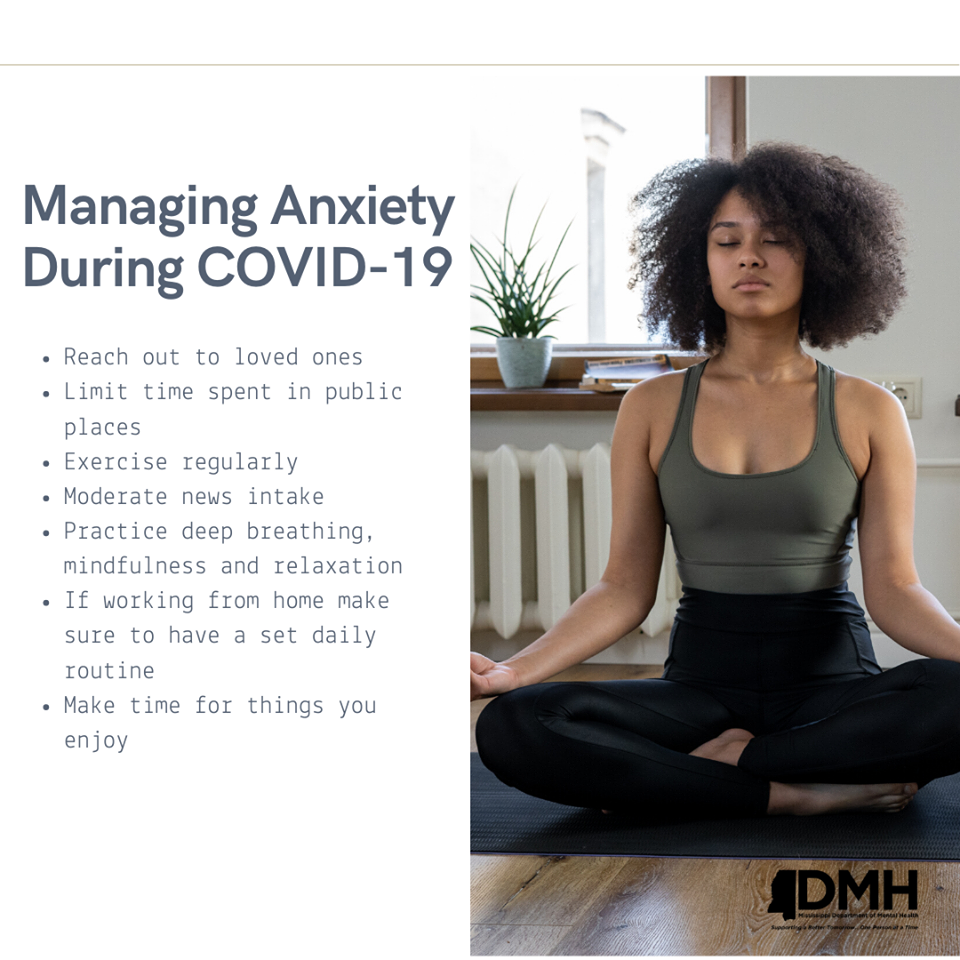The Mississippi Department of Mental Health is launching a "Behind the Mask Campaign" to encourage residents to pay closer attention to their mental health and seek help when needed. As MPB's Ashley Norwood reports, experts say more Mississippians are experiencing symptoms of mental illness than they were pre- coronavirus pandemic.
Mental health experts in Mississippi say feelings of anxiety and depression are common among residents during the coronavirus pandemic. The top contributors include changes in employment, children learning from home, fears about one's own health and in Kimar Cain's case the loss of a loved one.
"I've had one good ugly cry, understanding that I won't see this person again for as long as I have life," said Cain.
Cain is an elementary school teacher in Natchez. In April, his father died after more than a week of fighting complications from the coronavirus. He says it still feels unreal and he's seeking mental therapy to help him come to grips with his loss and other emotions brought on by the pandemic. But in the mean time, Cain says there are a few things keeping him sane.
"Reading books, staying active, working out, riding my bike, deep breath exercises... things like that," said Cain. "That helps me remain at peace and keep my mind in good standing with all the chaos going on."
Molly Taylor with the state department of mental health is encouraging Mississippians to utilize therapy and other mental health services in the state. Through a $1.6 million grant, the department funded 15 providers across the state to further offer mental health services to residents in need.
"There is help available and asking for help is not a sign of weakness but one of strength," said Taylor. "It can be uncomfortable to ask for help, but just like physical health conditions mental health conditions need treatment to get better."
More information is available at www.behindthemaskms.com




